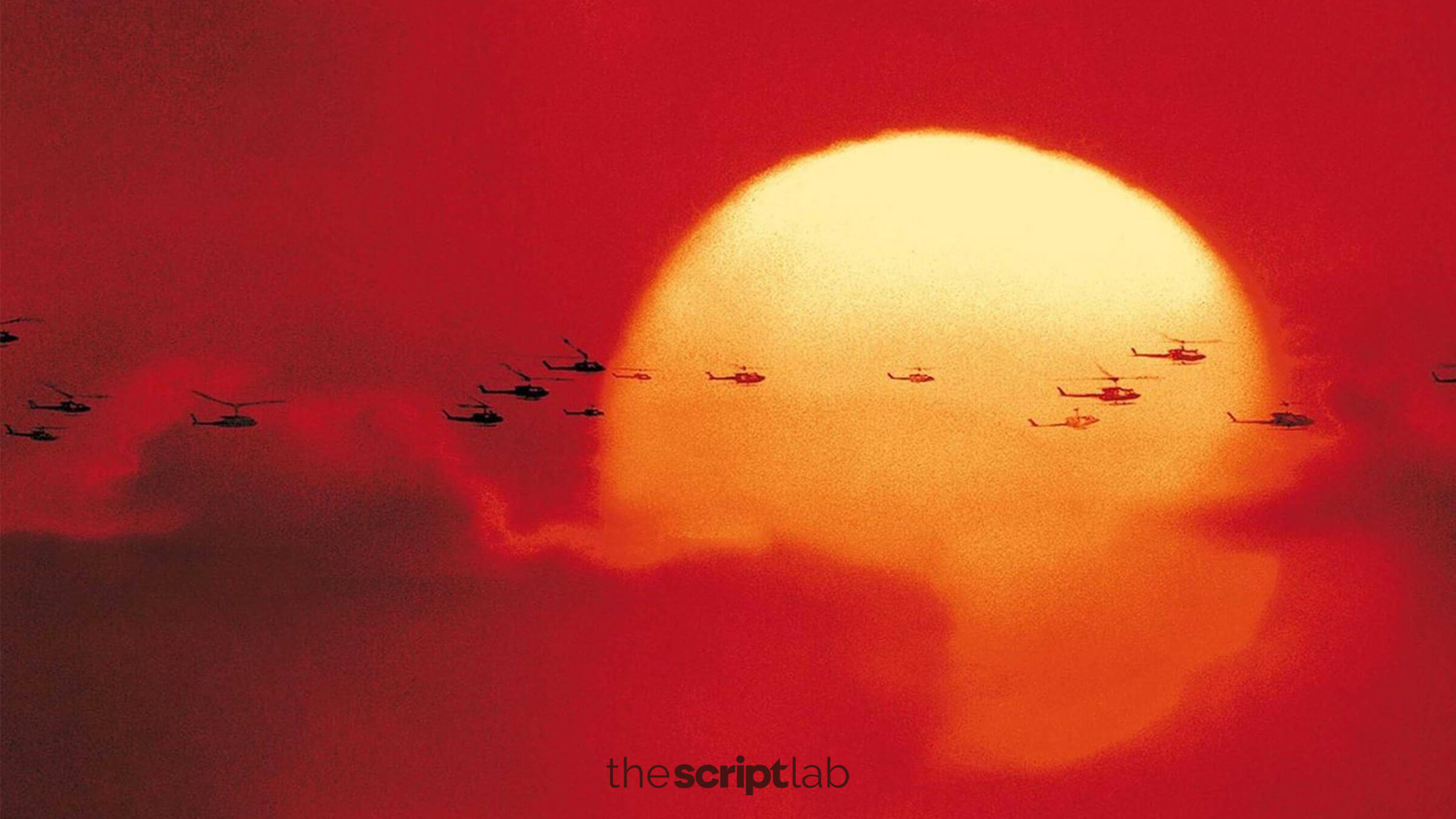By David Young · September 19, 2022

Created during the New Hollywood film movement of the 1960s – 1980s, Francis Ford Coppola movies run the gamut in genre and style — from his modern gangster masterpiece The Godfather to his hyper-paranoid thriller The Conversation. However, the quality that all of these films share is their sense of grandeur as the epic tale of woe and intrigue is told. In fact, his newly announced project, Megalopolis seems to fit this bill, as well.
Coppola’s storytelling encompasses expansive, epic journeys (emotional and physical alike), whether they take place in a nest of organized crime, an accursed castle stronghold, or a war-wasted jungle. Get a feel for his sense of grandeur and his love for the modern epic — stories about massive undertakings by complex, unconventional heroes — by looking at some of the scripts Coppola directed with that same flourish.
Scripts from this Article
When you think of Francis Ford Coppola movies, this is the first one that comes to mind. Coppola earned his biggest directorial kudos with The Godfather, based on Mario Puzo’s best-selling novel of the same name, hailed even in 1972 as an instant classic with a powerhouse cast to boot. But the other thing that made his creation stand out was the fact that this crime boss and his family seemed all-encompassing, larger than life.
The inevitability of Michael Corleone’s fate helps to make this film all the more enticing. More than that, though, there’s a romantic element to the world of the mafia as it’s presented by Coppola — not in a way that offers judgment, but in a way that builds on the archetype of the “gangster” as an antihero. It’s through the lens of Coppola’s writing that this archetype gains an almost mythical status, and it’s through his direction of the performances onscreen that this film — and its impact on the genre — upholds its legendary status as the beginning of a larger-than-life tale depicting the perpetual grayness of human moral fiber.
Watch as Coppola and Puzo discuss the script and their collaboration on The Godfather.
Download the script!Humans are odd creatures, and war makes them even odder. This is something seen in transformative fashion through the events of Apocalypse Now.
Reading through Coppola’s script sheds a light on the nature of hubris and the unshakeable sense of purpose that possesses Kurtz and Willard alike. The absurdity of the setting — the gritty surrealism of fighting an unwinnable war — makes this epic all the more enthralling, as it captures the upriver journey Willard takes into the jungle as a parallel to a journey into madness. That journey, of course, is far more immense, and it’s one that ultimately leads Kurtz to his own demise.
It’s this kind of tale that’s both poetic and mythological in style, and it’s the kind of story Coppola seems bound to continue telling when he brings something to the screen.
Download the script!Francis Ford Coppola didn’t pen the epistolary novel that made vampires a part of modern folklore — but he did enjoy making his own version of the tale onscreen, with a star-studded cast that featured Gary Oldman as the Count himself.
Bram Stoker’s Dracula is a tale of variety: horror, adventure, and romance are entangled within the trappings of a supernatural setup, where the titular character receives an unholy curse that makes him become the monster of legend.
Coppola’s dedication to a visually invigorating version of the original source material makes this story stand on its own as a labor of love, and as a mythic adventure unto itself — not completely separate, but separate enough from the novel. Once again a tale to mirror the epic poems of old, this film is even divided in a Shakespearean fashion that fully encapsulates how awe-inspiring and horrifying the original tale was back at the end of the nineteenth century.
Download the script!Speaking of Shakespearean division, the second installment of Coppola’s most famous contribution to film uses such devices to again lay the groundwork for transformation.
Much like Apocalypse Now and The Godfather showcase such transformation, the journey of Part II accomplishes the same in many ways, even serving partly as a prequel to the first installment. It showcases the acceptance of roles and transformations, and once again it adopts a sense of grandeur that Coppola has successfully made synonymous with his Hollywood mafia dons. His script here is a slow burn, but one that ultimately carries the narrative through another two immense chapters of conflict before it’s all said and done.
Download the script!Francis Ford Coppola movies are classics. The director is considered a cinematic genius and his sweeping epics are regarded as the greatest films ever made. The scripts we see here are proof of that, as even the script he didn’t write — Bram Stoker’s Dracula — carries his signature style of epic narrative through both the content and the presentation.
However, despite his own grandeur, Coppola is still a deeply personal filmmaker whose love for cinema brightly shines even in his darkest films.
If you want to make your scripts and stories larger than life, read the scripts he wrote that we mentioned above! Get familiar with what makes each of his tales a story of legendary proportions, with emotionally intense characters and massive stakes for their personal journeys.
Read More: Why 1974 Might Be the Greatest Year in Screenwriting